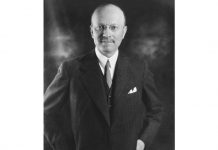With the recent situation where Sebastian Vettel (Red Bull) ignored the team orders, I thought I should bring you up to date over this contentious item.
Team orders is not something new. Team Orders have existed in motor sport for decades. Some of the famous motor racing heroes have owed their world driver’s championship titles to team orders.
In 1956, Peter Collins was on the verge of becoming Britain’s first F1 World Champion when he handed his Lancia-Ferrari D50 over to team leader Juan Manuel Fangio, which resulted in Fangio winning the Drivers championship that year. Team orders of an extreme type.
These days, mentioning ‘team orders’ in a group of western race enthusiasts will produce an instant response, with memories of Barichello moving aside to let Michael Schumacher through to win in 2002, and then Schumacher inviting Barichello to take the top step of the podium, to be later fined one million dollars for upsetting the order on the podium! The fine was not for the team orders.
In the 1997 Japanese Grand Prix there was a more sophisticated use of team orders, where Ferrari No 2 Eddie Irvine began the race light on fuel, allowing him to get ahead of the superior Williams-Renault cars and hold them up, to the benefit of Ferrari No 1 Michael Schumacher.
In 2007, Felipe Massa was guilty of allowing Kimi Raikkonen to overtake and win with team orders. In Red Bull, Mark Webber was told not to overtake Sebastian (the finger) Vettel at Silverstone.
Harken back to Barichello, Massa and Webber. The motoring media was in a frenzy, and it was put forward that the reason for the frenzy was because the FIA rules forbade the practice of team orders. This directive had come subsequently after the 2002 season, and read, “Team Orders that could influence the outcome of a race” were banned in F1 regulations.
However, this in turn brought out the inventive nature of human beings. Messages such as “Fernando is faster than you. Can you confirm you understand that message?” being given to Massa, obviously being an attempt at a “code”, but not a code of conduct! Even more secret codes began to be used. Instructions to turn down engines, or to save fuel became the way to continue the practice of team orders.
So what could be done about it? Was there a way the Federation Internationale de l’Automobile (FIA) could police this? The simple answer was again, no. The FIA, an organization that has rarely covered itself in glory, then responded by lifting the ban on team orders. However, “Team orders” is considered a form of cheating in the West, and every society frowns on cheating.
So, should we ban team orders again? Or just learn to live with it? The answer is not difficult. The policing of a ban on team orders is really quite impossible to do. There will always be ways around the problem, so the motor racing fraternity should just continue, as it has done for decades, allowing the team to decide just who finishes where. Remembering that for the team, the Constructor’s championship is more important financially than the Drivers championship.




